Before we get started, I have a few rules about reviewing Fight Club.
1st Rule: I will talk about Fight Club.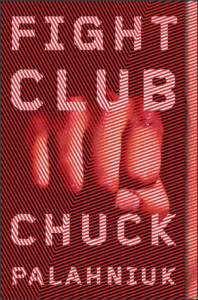
2nd Rule: Not only will I talk about Chuck Palahniuk’s Fight Club, I will spill and spoil and tell all the secrets because they have both been out for well over a decade so I am surely the last person on earth to consume these morsels of pop culture. If by the slim chance you haven’t read or seen it and you think you will, then you do not want to read any more. Trust me. The twist is a great one and I would never forgive myself if you weren’t properly warned and forewarned. Well, I would, I mean it’s just a bookmoviething.
Okay, so quick book synopsis:
The book is narrated by an unnamed male in his late twenties who is suffering from insomnia. Working for “the man” he’s meandering through his life on autopilot with no purpose except to spend the money he’s earned, acquiring a wealth of things but nothing meaningful. And he’s literally exhausted. To combat this, he sees a shrink who refuses to medicate him; rather, the doc recommends that he attend some support groups to see true suffering. Dropping in on a testicular cancer group, our protagonist lets his guard down, breaks down and breaks the cycle of his sleepless nights. Attending support groups multiple nights per week becomes his Ambien.
Enter Tyler Durden, our narrator’s new BFF. Durden is anti-establishment and questions our guy’s meaningless life:
Advertising has us chasing cars and clothes, working jobs we hate so we can buy shit we don’t need. We’re the middle children of history. No purpose or place. We have no Great War, No Great Depression. Our great war is a spiritual war. Our great depression is our lives. We’ve all been raised on television to believe that one day we’d all be millionaires and movie gods and rock stars, but we won’t. And we’re slowly learning that fact. And we’re very, very pissed off.
Tyler is brash, bold and seductive in his quest to challenge our narrator:
Warning: If you are reading this then this warning is for you. Every word you read of this useless fine print is another second off your life. Don’t you have other things to do? Is your life so empty that you honestly can’t think of a better way to spend these moments? Or are you so impressed with authority that you give respect and credence to all that claim it? Do you read everything you’re supposed to read? Do you think every thing you’re supposed to think? Buy what you’re told to want? Get out of your apartment. Meet a member of the opposite sex. Stop the excessive shopping and masturbation. Quit your job. Start a fight. Prove you’re alive. If you don’t claim your humanity you will become a statistic. You have been warned.
And he’s successful. If not a bit enigmatic. And our guy is baited–hook, line, sinker:
I love everything about Tyler Durden, his courage and his smarts. His nerve. Tyler is funny and charming and forceful and independent, and men look up to him and expect him to change their world. Tyler is capable and free, and I am not.
A friendship sparks and the two form a profitable union–making luxury soap and bankrolling underground Fight Clubs. You know, what anyone would needing a change of pace would do… set up places where you can go after work, forget who you are, and just beat the shit out of someone. The next day, your life is normal. As normal as a life heading into the boss’ office with a bruised eye, broken lip and cracked rib can be. But for these men, it becomes their anthem, their purpose… to break out of the demands of society and have no expectations placed upon them.
We want you, not your money.
As long as you’re at fight club, you’re not how much money you’ve got in the bank. You’re not your job. You’re not your family, and you’re not who you tell yourself.
You’re not your name.
You’re not your problems.
You’re not your age.
You are not your hopes.
You will not be saved.
We are all going to die, someday.
And then you know what happens?
FINAL SPOILER ALERT!
It comes out of nowhere, like some guy’s left hook into your gut (don’t I sound like fighter, here? Consider it my official “research”).
We learn that the narrator is Tyler Durden.
Wait! What?
You double back. Start to lose your balance and you stand up and say out loud to no one, “What the fuck does this mean?”
Well, if you’re me that’s what you did.
And then you read to the end. Your head is swirling. Palahniuk has written a darkly bizarre, yet highly readable novel. You don’t know what to think of this wild and graphic story that was perversely, surprisingly good.
And then if you are me, you rented the movie in search of some additional clarity.
Enter Fight Club, the Movie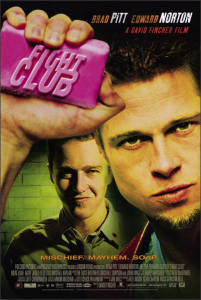
Okay, if there’s something I love almost as much as books, it’s movies. So it’s kind of crazy I hadn’t seen Fight Club. But it’s true; I didn’t think I couldn’t handle it. I don’t do violence really well. But I remember seeing the trailer and being torn. REALLY. TORN. You see, I love short-haired A River Runs Through It, Ocean’s 11, Se7en and Meet Joe Black (yes, even horrible MJB) Brad Pitt, not long-haired Legends of the Fall Brad Pitt. And here he was being all short-haired Brad. I know, I know. I am in the minority here on which Brad is hotter and I am okay with that. Add to the fact that I ADORE Edward Norton and will see him in anything and I was torn to pieces. I knew I couldn’t handle it. Good friends saw it and said, “Yeah, you can’t handle it.” So I didn’t see it.
But now I had the book under my belt and did okay. So I rented the movie from Netflix and it arrived the next day. It sat on my counter for a week. When I went to play the disc, it was totally cracked. A giant slice down one side. Super dramatical. Super ridiculous. Super over-anticipation. I got a replacement and you know what? I totally handled it. The movie, directed by the amazing David Fincher (Se7en, The Social Network and The Girl with the Dragon Tattoo), followed the book very closely and actually made the whole narrator/Tyler Durden mystery a little more clear to me.
Oh yes, Tyler and the narrator are still the same person. Total hallucination. Tyler Durden is a sociopath or schizophrenic or whatever the correct medical diagnonsis. And in the magic of movie making he’s able to exterminate his bad self, saving his good self and the girl in the process. Oh, yes, there’s a girl; I told you I would spill everything. The movie is really good and not nearly as violent as I thought it would be—I actually found the book more violent. I expected throbbing injuries, amped up sound as teeth and bones cracked and an unrecognizable leading cast, but that was not the case. It was classic Fincher, dark shots, cool spotlights, unique opening sequences and closing credits and just visually interesting. Fights, yes. Violence, yes. I won’t sugar coat it—it’s tough stuff. I guess I am just a bit tougher.
In the end, Fight Club in both of its forms has become a classic. It put Palahniuk on the map, if not initially. Fincher’s film version didn’t initially wow. But both iterations have found massive followings in their DVD and paperback forms and even on facebook, a medium not yet here when Fight Club hit the pavement. Palahniuk’s book encouraged men to read—I know! Men! Younger Men! Reading! This is a good thing. The book and film have amassed a massive cult-like following of Tyler Durden and his in-your-face philosophies, and may even cause you to stop and think about the race you are running, and if you are the rat following the masses or charting your own course. Or maybe that’s just too much critical thinking.
I think If I am wrong about the whole Tyler diagnosis, I am not sure I want to know.
Wait. Yes I do.
Of course I do.
I want you to tell me what you thought if you saw it or read it.
Tell me in the comments below.
Fight Club the book: 4 Stars
Fight Club the movie: 4 stars
 My side book review gig, Snotty Literati, just reviewed The Swan Gondola by Timothy Schaffert. The cover is beautiful (I mean just look at it) and that was a big motivator for us selecting it as our April pick. Yes, we were being a bit shallow. But in the end, it’s what is on the inside that counts. Read our review to see if this beauty goes beyond the dust jacket.
My side book review gig, Snotty Literati, just reviewed The Swan Gondola by Timothy Schaffert. The cover is beautiful (I mean just look at it) and that was a big motivator for us selecting it as our April pick. Yes, we were being a bit shallow. But in the end, it’s what is on the inside that counts. Read our review to see if this beauty goes beyond the dust jacket.
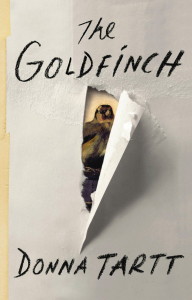 We like big books and we cannot lie! Well, some big books.
We like big books and we cannot lie! Well, some big books.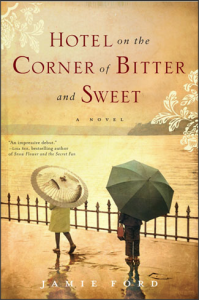
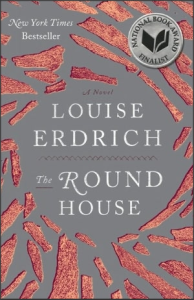


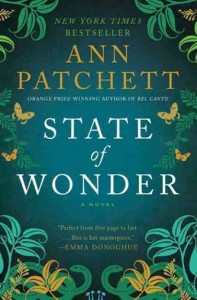 I think by now everyone knows how much I adore Ann Patchett. Every book of hers that I read, I thoroughly enjoy. Plus, she’s so dang smart, and literary, and she opened her own bookstore, Parnassus Books in Memphis and was one of TIME Magazine’s 100 Most Influential People last year. I mean, what CAN’T this woman do?
I think by now everyone knows how much I adore Ann Patchett. Every book of hers that I read, I thoroughly enjoy. Plus, she’s so dang smart, and literary, and she opened her own bookstore, Parnassus Books in Memphis and was one of TIME Magazine’s 100 Most Influential People last year. I mean, what CAN’T this woman do?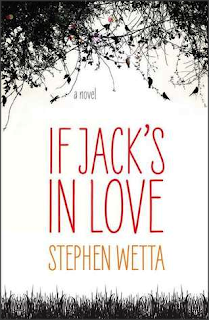 “You can choose your friends but you sho’ can’t choose your family, an’ they’re still kin to you no matter whether you acknowledge ’em or not.” ~ Harper Lee To Kill a Mockingbird
“You can choose your friends but you sho’ can’t choose your family, an’ they’re still kin to you no matter whether you acknowledge ’em or not.” ~ Harper Lee To Kill a Mockingbird

